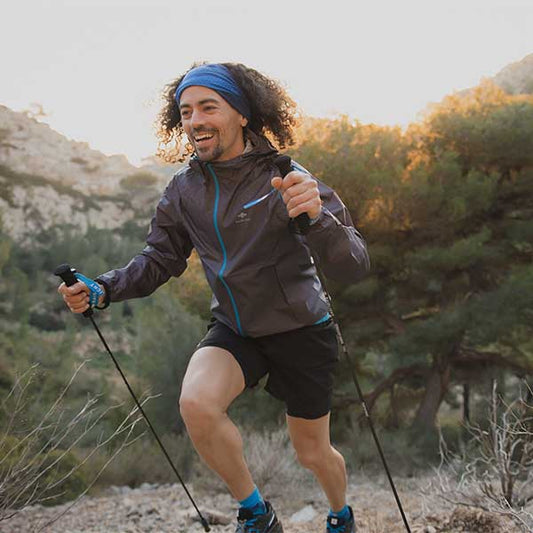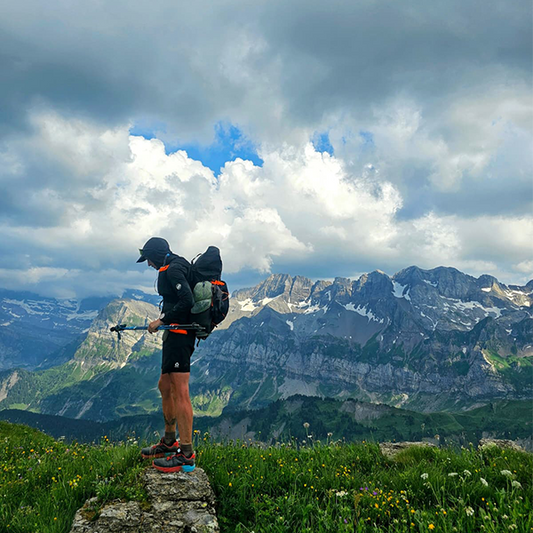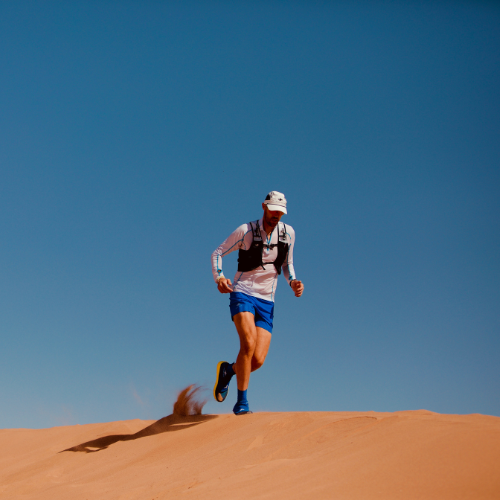How to start trail running?
The freedom, the challenge, the great outdoors... There are a thousand reasons to start trail running! Whether you are a beginner or an experienced runner, anyone can start. Trail running is attracting more and more runners, but starting out in this discipline cannot be improvised if you want to enjoy yourself and avoid injury. The feeling is indeed very different between road running and trail running.
Here are a few tips to start trail running.
Beginning trail running: from flat to hilly
To begin trail running, patience is required, it is better to choose paths that are not too technical (without too many roots in the forest, nor too many stones) and not too hilly to gradually get used to the instability of the terrain, to the variations... (roots and so on) that are difficult to apprehend if you stay on the road.Trail running is practiced on trails of a very different technicality. If running on the flat on the wide paths of an urban park can be similar to trail running, the path can become much steeper and more technical in the mountains. It is therefore important to choose the right trail route according to your experience.
Vary the training grounds
Basic endurance sessions are the key to trail training for beginners. It's all about running at low intensity without being too out of breath. Some may be disappointed, but to start trail running, you should start with easy, low-tech routes in the forest or on paths with little difference in altitude, and then gradually move on to more rugged paths with more difference in altitude, thus lengthening the distances.
Go for a hike
The idea of switching from road running to trail running is motivating, but it can be tricky to extend the outings, especially when there is a lot of climbing.
Hiking is very complementary to running. It is a good basis for getting used to your new playground and developing endurance. In particular, it's an opportunity to learn to get used to the difference in altitude. You will work on the climbs and solicit specific muscle groups that will serve you for the trail. It will also allow you to do long outings and to discover varied landscapes and unknown paths.
Strengthening muscles
If you switch from road to trail running, be aware that a period of physiological adaptation is required because the muscle groups involved are very different.
Indeed, trail running is a demanding discipline, which requires strong muscles and joints, resistant to fatigue, which requires more muscle work than on the road. It is therefore necessary to strengthen your body, your muscles, your joints and your tendons to avoid injury.
Running is generally an impact sport, the differences with road running are the variations in pace, terrain and also the positive and negative gradients. Indeed, the muscular demands are very different so regular muscle strengthening can help you prepare your muscles for running downhill and uphill.
In addition, a general physical preparation will be really effective in reducing fatigue during a long trail. The stride can then remain effective for longer.
Forget your watch and enjoy nature
It is quite normal to be much slower in trail running than in road running. Generally, a trail run will take longer than the same distance on the road. The pace can vary greatly depending on the terrain, the condition of the trails, the markings, the weather conditions, and of course the difference in altitude.
The time reference points in trail running and road running are therefore not the same. Paces are very different and above all very irregular. So the best way to forget the passing of time and the passing of kilometres is not to have any reference points and therefore not to focus on your watch. Concentrate on your sensations and enjoy nature.
You'll see, once you've started, you can't stop!
Just like road running, trail running requires the right equipment to ensure your comfort and safety. In the face of nature and its sometimes hostile weather, it is necessary to opt for well thought-out equipment in order to be able to deal with any eventuality.
Find all our advice and our selection which will allow you to choose the best equipment adapted to your practice of trail.











